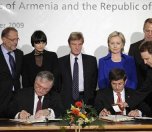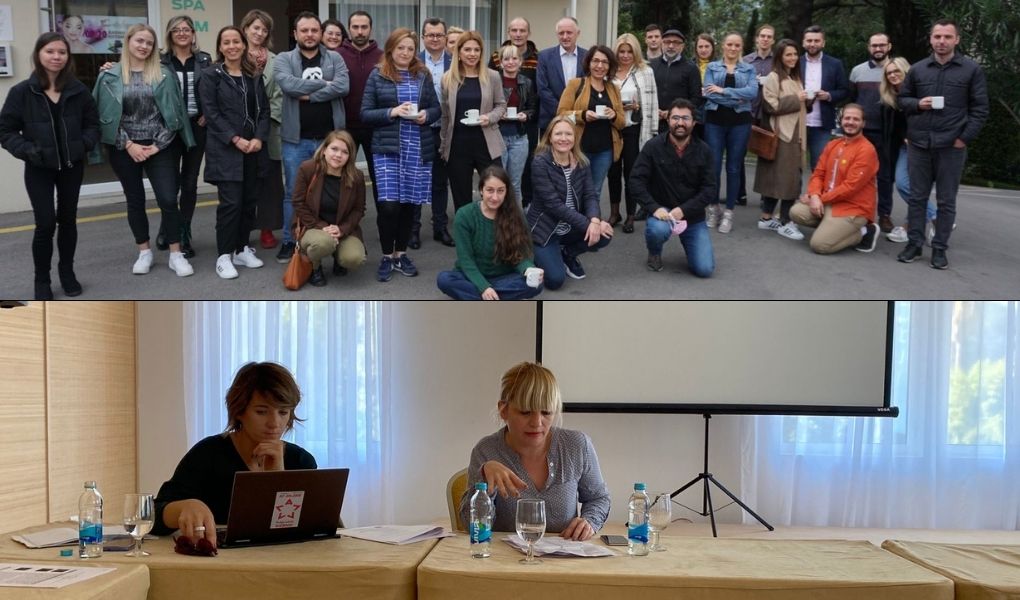Click to read the article in Turkish
Richard Giragosian, the Founding Director of the Regional Studies Center (RSC), an independent "think tank" located in Yerevan, Armenia has talked to bianet about the statement of Armenian Foreign Minister Edward Nalbandyan from last week, that the "political protocols between Turkey and Armenia would be nullified" and which aspects were crucial in the process of normalization.
Armenia's Foreign minister Edward Nalbandian said protocol process is about tho nullify the protocol by spring. Firstly, what do you think of this statement?
Despite the recent "war of words" between Armenia and Turkey, marked by dueling allegations and destructive accusations, the outlook for Armenia-Turkey "normalization" is neither as politically toxic nor as topically poisonous as it seems.
Moreover, the Armenian threat to "nullify" the signed but suspended diplomatic protocols is not that much of a surprise. Rather, after several years of waiting, the threat merely reflects the reality that there are indeed limits to Armenian patience for Turkey to fulfill the terms of the protocols. Nevertheless, despite the drama of the recent rhetoric, this war of words only reiterates the need for "normalization" between Armenia and Turkey, and reminds each side that the promise for Armenia and Turkey far outweighs the peril of reopening the border and establishing diplomatic relations.
Regarding Turkey, since the historic, first-ever reciprocal visits of the Armenia and Turkish presidents in what was termed "football diplomacy," the once promising "normalization" process has dramatically stalled.
Although capped by the signing of two ground breaking diplomatic protocols by the Armenian and Turkish foreign ministers in October 2009, official state-level engagement remains suspended. Yet against this backdrop, there are renewed signs of optimism, as the Armenian position of "no preconditions" still offers an opening and opportunity for the hesitant Turkish side to move much closer toward normalizing relations and re-opening the closed border. And generally, the Armenian policy of "no preconditions" has only helped to reassure Turkey that its policy correction was both prudent and productive. Second, recent efforts to "sustain the momentum" of Armenian-Turkish engagement through civil society cooperation, people-to-people contacts and exchanges, and attempts at "track two" diplomacy, have only increased in the wake of the suspension of state-to-state talks.
"Opening borders is an opportunity for galvanizing economical activity"
What is your future predictions about the relationship between Turkey and Armenia. Is there a chance for another normalisation process?
The issue of "normalization" must be seen in the proper perspective, however, as any move by Turkey to reopen the border and extend diplomatic relations with Armenia represents only the bare minimum of expectations of normal neighbouring countries.
Moreover, for Turkey, opening its closed border with Armenia would constitute a new strategic opportunity for galvanizing economic activity in the impoverished eastern regions of the country.
Likewise, an open border with Turkey would offer Armenia not only a way to overcome its regional isolation, but also a bridge to larger markets crucial for economic growth and development. In addition, the commercial and economic activity resulting from opening the Armenian-Turkish border would foster subsequent trade ties between the two countries that, in turn, would lead to more formal cooperation in the key areas of customs and border security. And with such a deepening of bilateral trade ties and cross-border cooperation, the establishment of diplomatic relations would undoubtedly follow.
"Armenian minorities serve as a bridge between Turkey and Armenia"
There is an handicap about the Patriarch elections in Turkey. What is your view about that? What do you think about the Armenian minority's conditions in Turkey generally?
The controversy over the election of the new Armenian Patrirach demonstrates two significant facts: that the Armenian community of Turkey, and especially in Istanbul, retains its own identity and remains separate from any direct influence form the Armenian government. Nevertheless, the Armenian community of Turkey has the potential to play an important role as messengers, diplomats and even as a bridge between Turkey and Armenia. And in this context, there is a degree of hope and optimism regarding normalization with Turkey.
"2018 will be a year where the crisis between the US and Turkey will deepen further"
You are also an American think tank. US-Turkey relations has a rising tension also. How do you think the relations will develop in the future?
Regarding US-Turkey, it seems clear that relations will continue to decrease and worsen before recovering.
Also, tension within the NATO alliance will continue to worsen, especially over the missile defense deal with Russia. And in fact, Moscow will seek to only exacerbate the tension between Ankara and Washington.
This all means that 2018 will only continue to be a challenging year for the US and Turkey and it seems clear that the crisis will deepen further. (PT/DG)




.jpg)






.jpg)